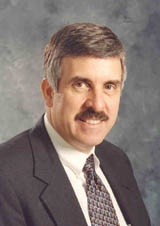Jun 15 2009
Robert S. Schwartz, MD, medical director of the Minnesota Cardiovascular Research Institute, Minneapolis Heart Institute Foundation, will describe the new paradigm of the biocompatibility of intravascular devices during his keynote presentation at the leading conference on materials for medical devices.
 Robert S. Schwartz, MD
Robert S. Schwartz, MD
Dr. Schwartz will speak at the 2009 Conference on Materials and Processes for Medical Devices (MPMD). Organized by ASM International, the materials information society, the event will be held Aug. 10-12 in Minneapolis.
After establishing the Center for Applied Vascular Biology and Coronary Interventions at the Mayo Clinic, Dr. Schwartz helped found the Minnesota Cardiovascular Research Institute, which is dedicated to novel technology and its medical applications. Dr. Schwartz has authored or co-authored over 300 scientific publications and abstracts, and appears on 46 patents in medical applications as an inventor.
Dr. Schwartz will describe a major problem in clinical medicine: the lack of a suitable prosthetic arterial conduit. “The scope of need is immense, encompassing peripheral vessels, cerebral arteries, and coronary arteries and grafts,” he said. “Our failure in developing such a conduit represents the lack of understanding of arterial vascular biology, and when such an understanding has been achieved, we will simultaneously have at hand a solution of problems such as restenosis of both coronary stents and following PTCA alone.”
ASM’s Materials and Processes for Medical Devices event is the only medical devices conference and exposition that brings together materials scientists and engineers, metallurgists, product designers, researchers and clinicians, according to Jeremy Gilbert, Ph.D. of Syracuse University chair of the MPMD organizing committee. Information about the MPMD Conference is available at www.asminternational.org/meddevices.
The event brings together the world’s foremost experts from academia, industry, and national laboratories involved in cardiac, vascular, neurological and GI implants, orthopaedic implants, dental devices and surgical instrumentation/devices. Materials covered include biomedical alloys (stainless steels, Ti alloys, Co-Cr alloys, Ni-Ti alloys, noble and refractory metals), biopolymers, bioceramics, surface coatings, and nanomaterials.
To fill the knowledge gap between the innovators who design medical devices and the engineers who best understand materials and their capabilities, ASM International launched its Materials & Processes for Medical Devices (MPMD) initiative in 2003.
The growing need for reliable materials information by the medical devices community has resulted in a growing number of new events and services, including the Materials for Medical Devices Database, MPMD seminars and the MPMD Conference. For more information about MPMD, visit www.asminternational.org/mpmd.